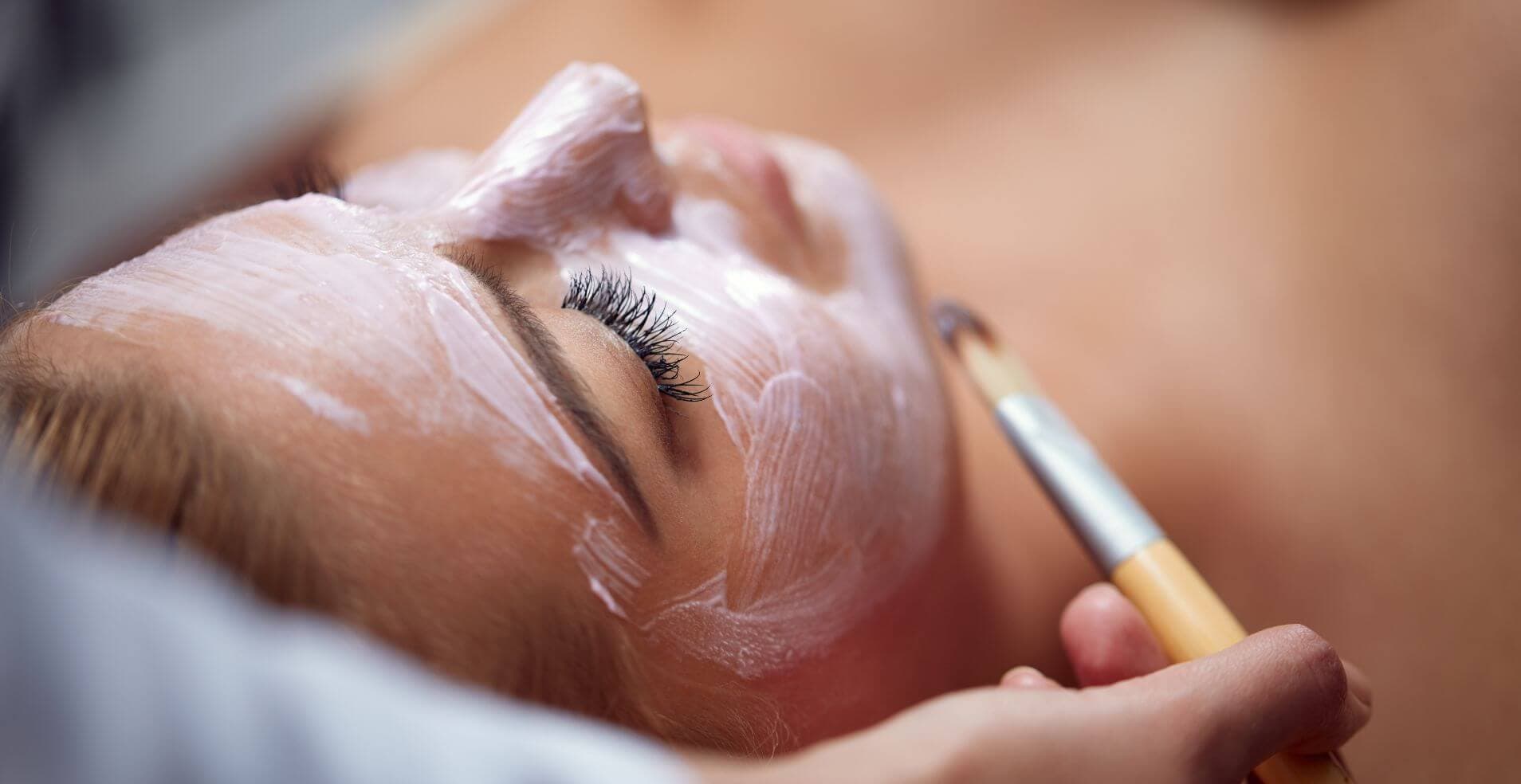
Target dark spots and uneven pigmentation with advanced, non-surgical treatments at L’Atelier, Harley Street, London
These patches can look brown, tan or grey, and often give the skin an uneven, dull or aged appearance.
While hyperpigmentation is extremely common, it can also feel frustrating and difficult to manage without professional guidance. At L’Atelier Aesthetics, we take a personalised, science-based approach to help restore clarity, even tone and natural radiance to the skin.
Whether your pigmentation concerns are long-standing or the result of recent sun exposure, our expert clinicians can assess the underlying cause and recommend the most effective combination of treatments to brighten and rebalance your complexion.
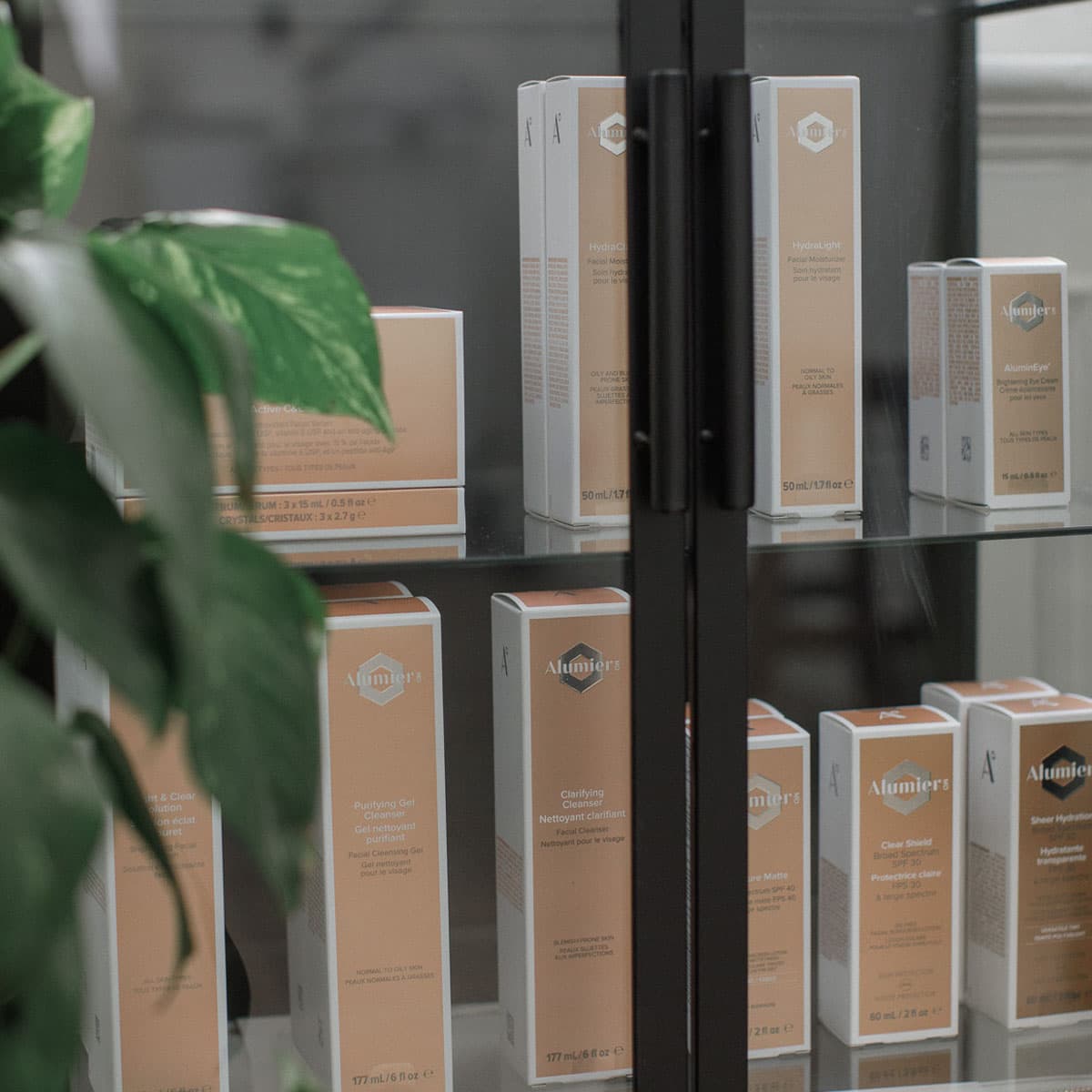
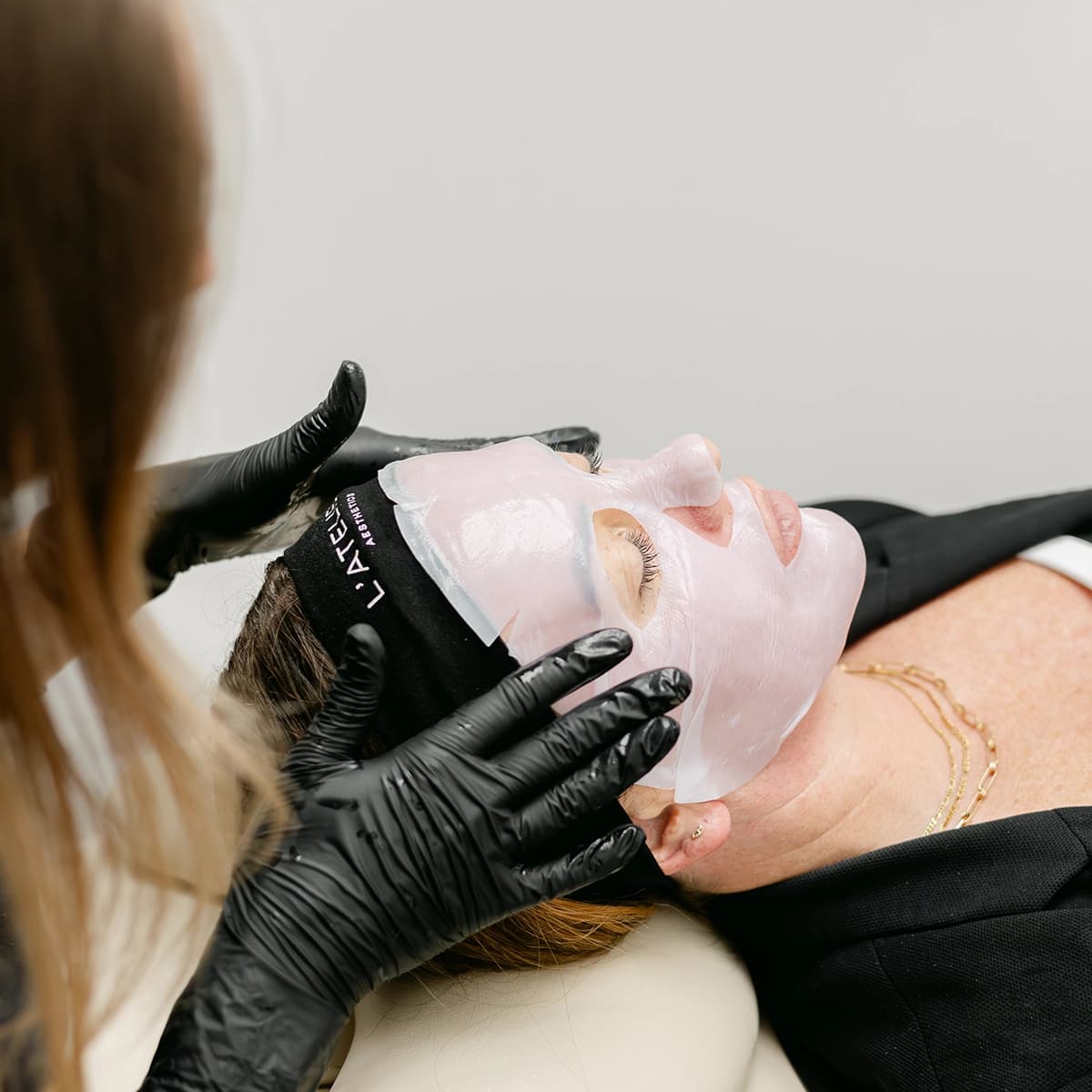
Hyperpigmentation occurs when melanocytes, which are the the cells responsible for producing pigment, become overstimulated. This leads to excess melanin in specific areas of the skin. Several factors can trigger this response:
UV light is one of the primary drivers of pigmentation changes. Sun damage accumulates over time and can appear as sunspots, age spots or general uneven tone.
Fluctuations in hormones, commonly seen during pregnancy, when taking contraceptive pills, or while on certain medications, can lead to melasma, which is a form of hyperpigmentation often appearing on the cheeks, forehead and upper lip.
Post-inflammatory hyperpigmentation (PIH) develops after the skin heals from acne, blemishes or irritation. These marks can linger long after inflammation has resolved.
Darker skin types have more active melanocytes and therefore may experience pigmentation more easily or visibly.
As the skin matures, its ability to repair UV damage decreases, making pigmentation concerns more noticeable.
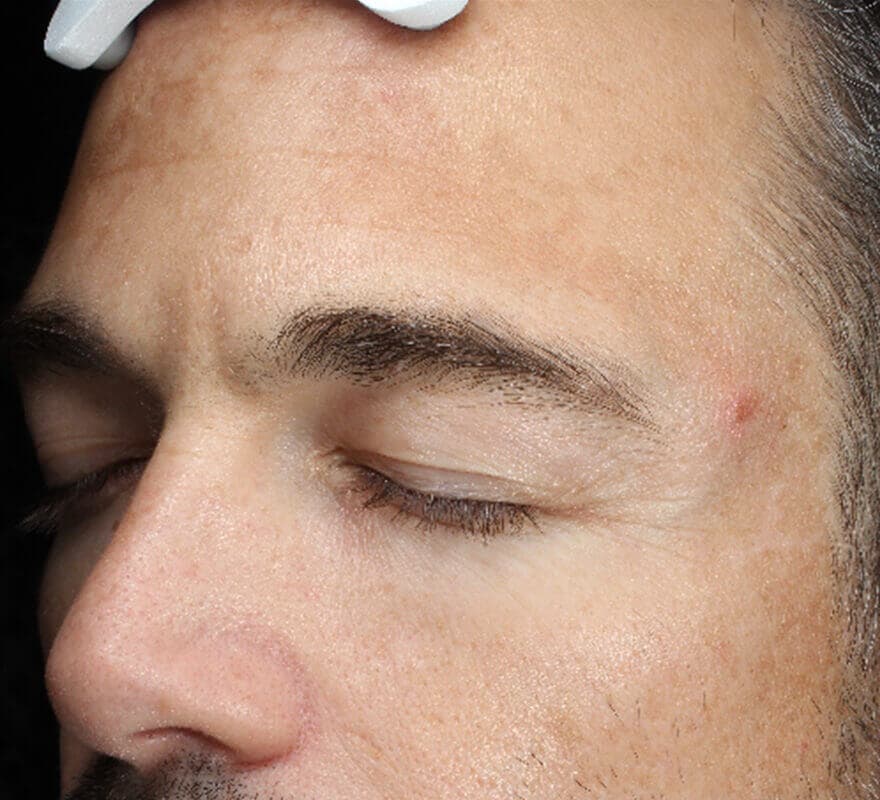
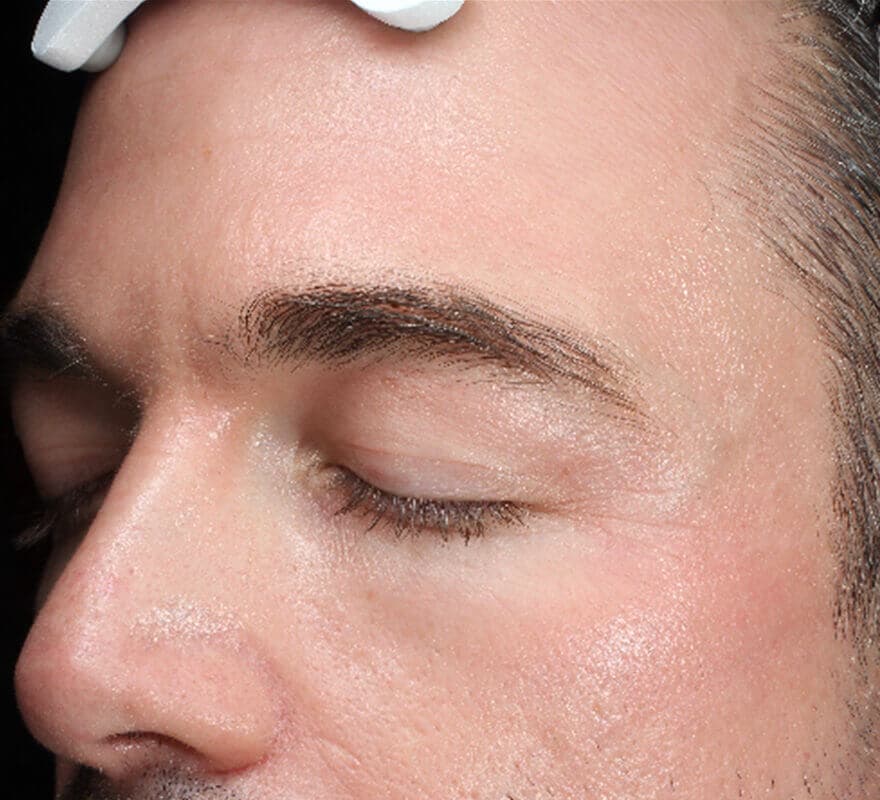
Hyperpigmentation affects everyone differently. After a detailed consultation, we’ll recommend the most effective treatment or combination tailored to your skin concerns
Chemical peels are one of the most effective ways to lift unwanted pigment and brighten the complexion.
By exfoliating damaged surface cells and accelerating skin renewal, peels help fade dark patches, sunspots and uneven tone, revealing clearer, more radiant skin.
Dermamelan is a gold-standard depigmenting system designed specifically for stubborn pigmentation, melasma and long-standing dark patches.
It works by regulating melanin production at its source, significantly reducing pigment formation and preventing recurrence.

Microneedling stimulates collagen production and encourages fresh, healthy skin to replace areas affected by pigmentation.
It’s particularly effective for post-inflammatory marks left behind after acne or irritation.
A personalised skincare plan is essential for managing pigmentation long-term.
Brightening actives such as retinoids, vitamin C, azelaic acid and tranexamic acid work together to reduce pigment, improve skin health and support in-clinic treatments.
Hyperpigmentation occurs when the skin produces excess melanin. This can be triggered by sun exposure, hormonal changes, inflammation after acne, genetics or certain medications. During your consultation, we’ll assess which type of pigmentation you have and what’s driving it.
The most effective treatment depends on the type and depth of your pigmentation.
Chemical peels are ideal for sun damage and uneven tone.
Dermamelan is suitable for stubborn, widespread or hormonal pigmentation.
Microneedling works well for post-inflammatory pigmentation after acne.
Your clinician will tailor a plan specifically for your skin.
Most pigmentation can be significantly reduced, and many patients achieve a visibly brighter, more even complexion. Stubborn or hormonally driven pigmentation may require ongoing maintenance to keep it under control.
This varies based on treatment:
Chemical peels: usually a course of 3–6
Microneedling: often 3 sessions spaced 4–6 weeks apart
Dermamelan Programme: one in-clinic treatment + at-home protocol
Your practitioner will advise the ideal schedule during your consultation.
No. Melasma is a specific form of hyperpigmentation caused mainly by hormonal changes and sun exposure. It appears in symmetrical patches and can be more challenging to treat. Dermamelan is often the most effective option for melasma.
*Individual results may vary.
You may notice a brighter complexion within a few weeks, with more significant improvement after completing your recommended course. Pigmentation takes time to lift, but results build gradually and last with good skincare and sun protection.
Yes. At L’Atelier, we tailor treatment strength and selection to your skin type. We treat all Fitzpatrick skin tones safely and effectively, choosing methods that reduce pigmentation without overstimulating melanin.
Absolutely. Many patients achieve the best results with a combination approach. For example most clients combine chemical peels with microneedling, or Dermamelan treatment alongside a personalised skincare plan.
Downtime varies:
Chemical peels: mild peeling or redness for a few days
Microneedling: light redness for 24–48 hours
Dermamelan: initial peeling, dryness and redness during the first week
Your practitioner will guide you on what to expect and how to care for your skin after treatment.
At L’Atelier, we focus on addressing the root cause of your hyperpigmentation, not just masking the visible patches. Through a detailed skin assessment, we identify the specific factors contributing to your uneven tone; whether sun exposure, hormonal changes, inflammation, melasma or skin-type sensitivity. We create a tailored treatment plan designed to correct pigmentation, restore clarity and support long-term skin health.
Dr Duncan Brennand is the Lead Aesthetic Physician at L’Atelier Aesthetics and brings over a decade of experience in advanced, evidence-based aesthetic medicine. With a strong focus on skin quality, texture and long-term skin health, he is highly skilled in developing personalised treatment plans for complex pigmentation concerns, including sun damage, melasma and post-inflammatory hyperpigmentation.
Known for his precise, minimally invasive approach, Dr Brennand combines medical-grade skincare, targeted chemical peels, microneedling and advanced depigmentation systems such as Dermamelan to restore clarity and balance to the skin. His treatments are designed around natural-looking improvements, ensuring results that appear even, radiant and effortlessly refined.
At L’Atelier, Dr Brennand will guide you through a detailed consultation, accurate diagnosis and tailored plan to help you achieve a brighter, more even-toned complexion with confidence.


We are delighted to have over 200+ 5 star reviews. Your feedback is always important to us, as it helps us to improve our systems and processes in our continual pursuit of excellence. If you have any suggestions, comments, or concerns please get in touch.
Considering a dermal filler treatment? Learn more through our blog articles.